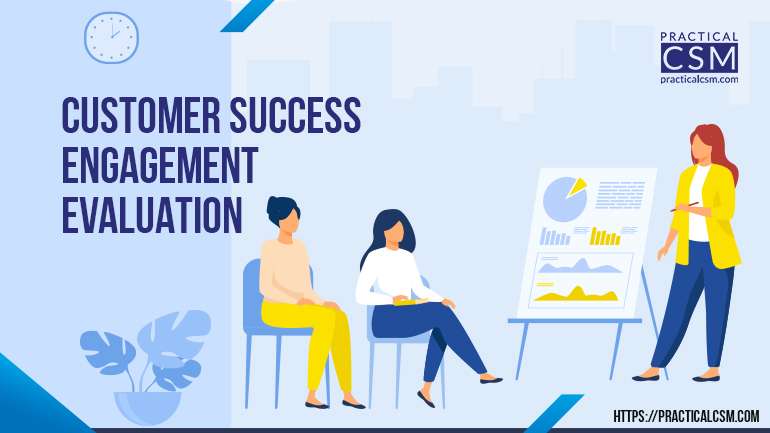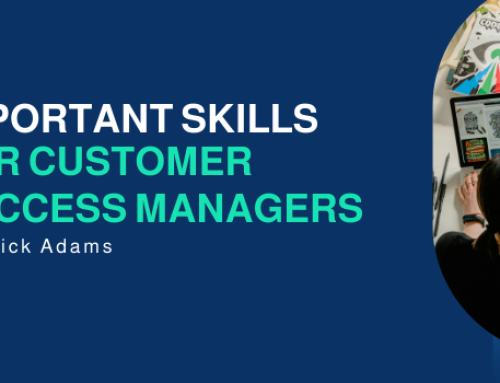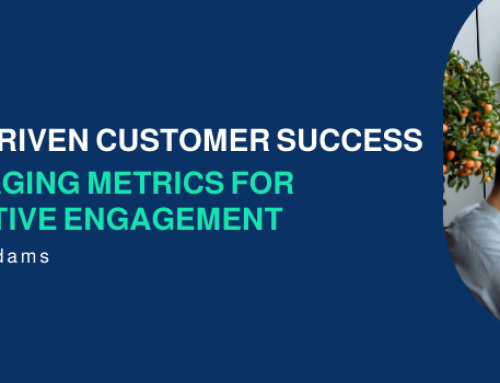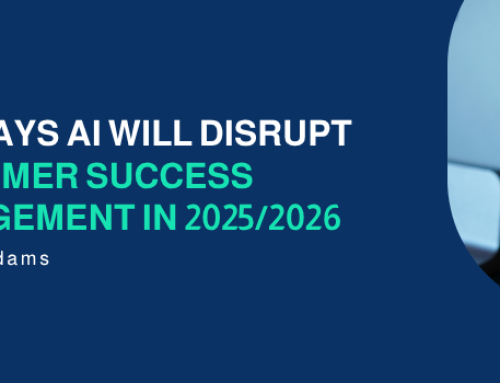Customer Success Engagement Evaluation
Why Evaluate What We Do?
In Customer Success as in so many other professions it’s very easy to spend all of our time working in our role and forget to leave time to work on our role. What do I mean by that? What I mean is that just like all the best businesses have a process of continuing development that helps them to refine and improve what they do in order to become more productive, to increase the quality of their outputs, to be more relevant to their customers’ needs and so on, so should the individual CSM take this same attitude of CPD or Continuing Professional Development seriously. To take it seriously means to schedule time for it. It doesn’t necessarily need to be a long or onerous task, but I do recommend that CSMs sit down either by themselves or (better still) as a team to discuss and review their activities over the preceding period and to evaluate what lessons can be learned, what best practices can be shared and what assets can be templated for re-use in future engagements.
What Value has the Customer Received from this Engagement?
The whole point of the entire exercise is for customers to get the help in the form of both advice and at times actual assistance that they need in order to attain the outcomes they were hoping for from the purchases of products and services that they have made. So… what value did they get out of all your hard work? It’s a reasonable question to ask yourself, and it’s also a reasonable question for those within your own company who have funded your efforts in terms of paying for your salary, your equipment, your training, your energy use, etc to also be asking. What’s more, it’s also a question that it is highly likely that the customer’s stakeholders are asking themselves as well. And the answer they conclude with may will impact their decision as to whether or not to renew services and/or to make additional purchases moving forwards. Aside from all these considerations, would it also be nice to know whether or not you have been actually contributing any value to the world in general or simply wasting your time? All in all then, asking what value the customer has received from your customer success activities is a fairly important question to ask.
Important thought this question is, it’s not the only question we could ask, since there are also some very related questions whose answers might also be very interesting. So alongside “What value has the customer received from this engagement?” we might also ask “How should this value be measured?”, “How is this value being measured?”, “Are the customer’s key stakeholders aware of this value?” and “Are my own company’s key stakeholders aware of this value?”. Finally we could also ask “What difference is this information actually making?” or to put it another way “How is information about value being used to make changes that lead to greater levels of value being attained in the future?”

Begin with the End in Mind
“Begin with the end in mind” is Stephen R Covey’s Habit Number Two from his bestselling book The 7 Habits of Highly Effective People. Right from the very start, my Certified CSM Professional training program encourages you at all times to focus on the end results that customer desire – what we have generally described as the customer’s outcome requirements. By fully grasping and understand these outcomes in a meaningful way right from the very get-go, these outcome requirements will have informed all of our decision making and all of our activities throughout the entire engagement. What this means is that through focusing steadily on the desired goals from the engagement we will (or let’s say at least “should”) have maximized the chances of attaining those goals as fully and completely as possible.
Just as a quick refresher, remember that a “fully understood and meaningful” outcome is one that is defined by a quality (what is it?) a quantity (how much of it?) and a deadline (when is it needed by?). Each customer outcome that we uncover and document must have at least these three aspects to it in order to be said to be truly meaningful and to be able to help us in determining what activities to perform and when and how to perform those activities.

So with this said, our start point for evaluating the value attained by the customer from a customer engagement is to determine what value they required, as this defines the target that we set ourselves for the engagement.
What Value has the CSM’s Company Received from this Engagement?
The whole point of engaging with the customer as a CSM is for customers to get the help in the form of both advice and at times actual assistance that they need in order to attain the outcomes they were hoping for from the purchases of products and services that they have made. But of course as we already know, whilst this is true in one sense, it is also not the entire story since in fact all of the above is essentially not “the end in and of itself” but rather a “means to an end” when regarded from the perspective of the CSM’s company’s senior executives. From their standpoint, CS is an investment from which they need to see a return. As a result then, the CSM needs not just to be taking measurements and reporting to customers on the progress being made towards the attainment of each customer’s outcomes, but also to be taking measurements and reporting to their own managers on the progress being made towards the attainment of their own company’s outcomes.
The process for doing this very much follows the same pattern as that for measuring and reporting on the customer’s outcomes. As with the customer, the start point is for the CSM to ascertain and document what their own company’s outcome requirements are, and should make sure that these are described meaningfully – in other words each outcome should contain all three aspects of a quality, a quantity and a deadline.

What Value have You (the CSM) Received from this Engagement?
Moving beyond purely the concept of receiving a salary for the work that has been performed, what else in terms of value does or could the CSM get from working through and ultimately completing a customer success engagement? That’s actually not a bad question to stop and ask yourself occasionally. Here are some further great questions you can ask yourself about your engagement that might help to define what value you yourself have attained from it…
• “What have I learned about my own company’s products and services that I didn’t previously know?”
• “What have I learned about my own company’s systems and processes that I didn’t previously know?”
• “What have I learned about this customer’s overall business capabilities, strategies, challenges and opportunities that I didn’t previously know?”
• “What have I learned about the customer’s specific initiative that this engagement was supporting that I didn’t previously know?”
• “What have I learned about this customer’s key stakeholders and/or end users that I didn’t previously know?”
• “In what ways have I improved my overall understanding of the customer success management role?”
• “In what ways have I improved my specific technical knowledge and expertise?”
• “In what ways have I improved my specific people management knowledge and expertise?”
• “In what ways have I improved my specific project management knowledge and expertise?”
• “In what ways have I improved my specific change management knowledge and expertise?”
• “What personal knowledge and expertise gaps have I uncovered?
• “What assets (eg tools, templates etc) have I created or customized?
• “What else have I learned that I have not yet documented?”
Each of these questions can also be followed by additional questions, which are:
• “How will this knowledge help me in the future?”
and…
• “What if anything do I need to do now to ensure this value is fully realized?”
Don’t Forget to Celebrate!
One final point. In evaluating performance over the past period since your previous evaluation, don’t forget to recognize your own and your colleagues’ achievements over this time. Take the time to celebrate the major successes, commiserate over any hardships endured and generally make sure you put some effort into ensuring that you and your colleagues feel rewarded not just in a financial sense from the remuneration package, but in the sense of being appreciated for having done a great job in no doubt sometimes difficult circumstances!





